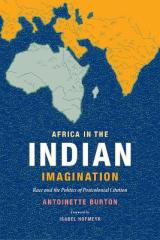"This is one of those books that you wish you could get everyone to read. ... For classes that focus on questions of global migration, political belonging and exclusion, and the powers of the State, this book is a useful resource. Rich in historical facts that help explain how we have reached a point where citizenship often overshadows humanity, <i>Citizenship in Question </i>will be a valuable addition for a required reading list or a personal library. Essential."<br /> - M. Lecea (Choice) "[A] remarkable contribution that both adds to scholarship on citizenship and challenges some of the inherent assumptions that underpin citizenship studies. ... This sophisticated and wide-ranging volume is essential reading for not only those interested in citizenship, bureaucracy and the state, but also for a wider, non-academic audience." - Kalathmika Natarajan (LSE Review of Books) “The case studies in this volume present a significant human rights challenge. . . . Citizenship allocations may seem as neatly drawn as lines on the map of the world. As this volume demonstrates, there are many contexts in which they are hardly that.” - Peter J. Spiro (Perspectives on Politics) "Powerful. . . . The contributing authors show through numerous examples how citizenship is not self-evident, nor can it be inferred from documents alone, which is another fundamental paradox to citizenship." - Sue-Je Lee Gage (PoLAR) "Essential reading for academics in citizenship law, but also a broader audience grappling with what citizenship and belonging mean in a modern world." - Susi Foerschler (Border Criminologies)
Contributors. Alfred Babo, Jacqueline Bhabha, Jacqueline Field, Amanda Flaim, Sara L. Friedman, Daniel Kanstroom, Benjamin N. Lawrance, Beatrice McKenzie, Polly J. Price, Rachel E. Rosenbloom, Kim Rubenstein, Kamal Sadiq, Jacqueline Stevens, Margaret D. Stock
Acknowledgments xv
Introduction / Jacqueline Stevens 1
Part I. International and Regional Protocols: Citizenship and Statelessness Protocols
1. Jus Soli and Statelessness: A Comparative Perspective from the Americas / Polly J. Price 27
2. The Politics of Evidence: Roma Citizenship Deficits in Europe / Jacqueline Bhabha 43
3. Statelessness-in-Question: Expert Testimony and the Evidentiary Burden of Statelessness / Benjamin N. Lawrance 60
4. Reproducing Uncertainty: Documenting Contested Sovereignty and Citizenship across the Taiwan Strait / Sara L. Friedman 81
5. What is a "Real" Australian Citizen?: Insights from Papua New Guinea and Mr. Amos Ame / Kim Rubenstein with Jacqueline Field 100
Part II. Official or Administrative Acts
6. To Know a Citizen: Birthright Citizenship Documents Regimes in U.S. History / Beatrice McKenzie 117
7. From the Outside Looking In: U.S. Passports in the Borderlands / Rachel E. Rosenbloom 132
8. Problems of Evidence, Evidence of Problems: Expanding Citizenship and Reproducing Statelessness among Highlanders in Northern Thailand / Amanda Flaim 147
9. Limits of Legal Citizenship: Narratives from South and Southeast Asia / Kamal Sadiq 165
Part III. Legislatures and Court Disputes
10. American Birthright Citizenship Rules and the Exclusion of "Outsiders" from the Political Community / Margaret D. Stock 179
11. IvoiritÉ and Citizenship in Ivory Coast: The Controversial Policy of Authenticity / Alfred Babo 200
12. The Alien Who Is a Citizen / Jacqueline Stevens 217
Afterword / Daniel Kanstroom 240
References 247
Contributors 275
Index 279
Produktdetaljer
Biografisk notat
Benjamin N. Lawrance is Hon. Barber B. Conable Jr. Endowed Professor of International Studies and Professor of History and Anthropology at Rochester Institute of Technology and the author of Amistad's Orphans: An Atlantic Story of Children, Slavery, and Smuggling.Jacqueline Stevens is Professor of Political Science and founding director of the Deportation Research Clinic in the Buffett Institute for Global Studies at Northwestern University and the author of States without Nations: Citizenship for Mortals.



























